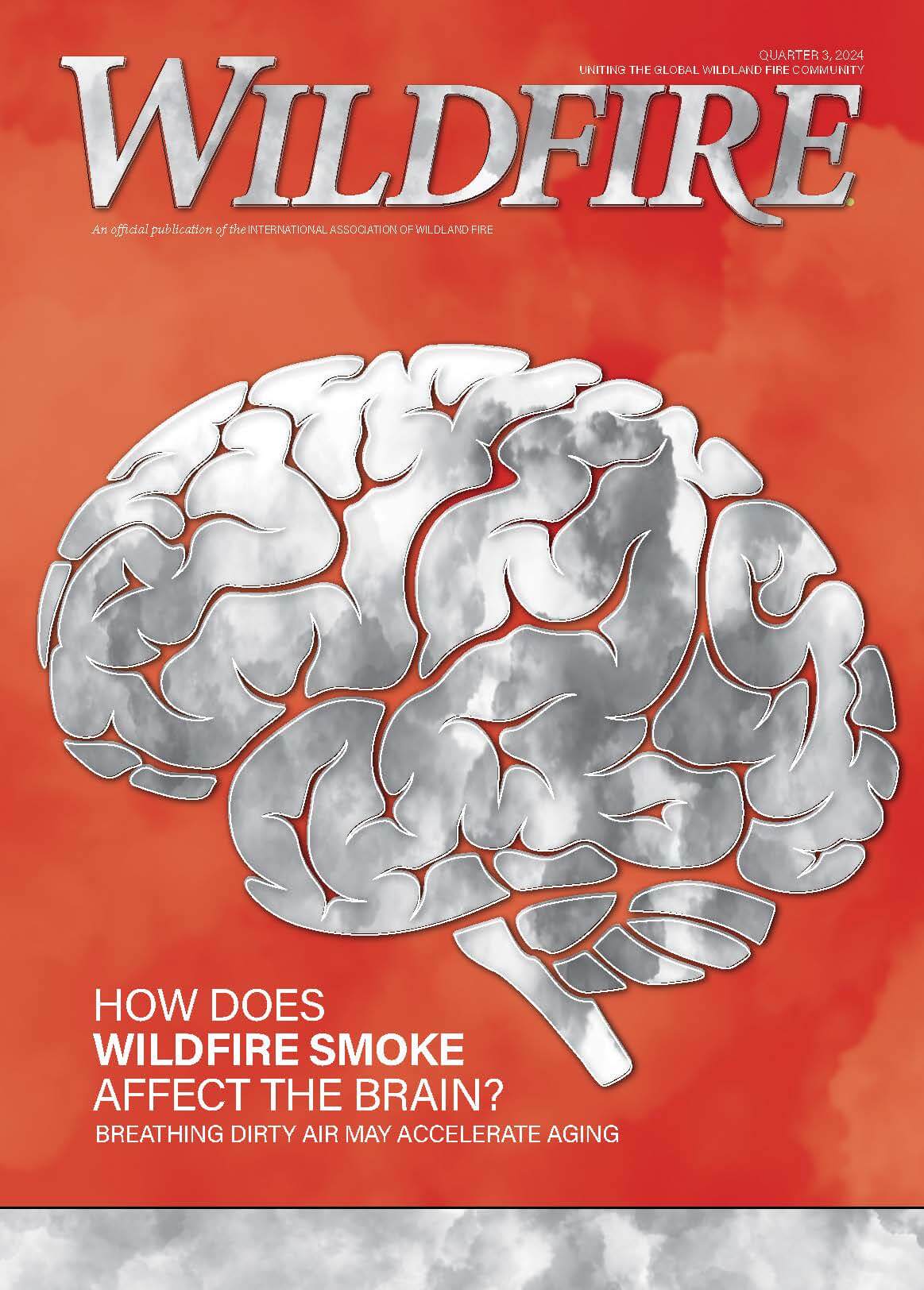Sixth-generation fires
Public-policy change toward prevention required to address large-scale events
Felipe Gonzalez, former president of Spain, delivered a keynote address during the 16th Wildland Fire Safety Summit | 6th Human Dimensions of Fire Conference in May. The transcript has been edited for clarity and length.
Between 2000 and 2017, 611 firefighters and civilians died in wildfires in European Union countries, with economic damage of more than U.S. $60.5 billion. Portugal has recorded more than 18,000 wildfires a year since 2007. Fires in 2017 killed more than 100 people. And fire seasons are extending into June and October. A 2020 EU report noted that authorities still use traditional suppression methods instead of investing in long-term prevention. In Western Europe, people are moving to cities from the countrysides. Untended fields, pastures and forests provide fuel for wildfires. Experts say there needs to be a change to prevention from suppression, and that policies need to consider climate adaptation, education and preparedness. If authorities fail to change the countryside, the European Forest Institute said in a report, emergency services will be unable to stop sixth-generation wildfires.
I was in charge of the government of Spain between 1982 and 1996, coinciding in the United States with Reagan, Bush, and Clinton, and from the first moment we committed ourselves to improve the technical means and human resources to fight forest fires.
At the time, there was a depopulation in Spain of the rural population from the countryside to the cities. This phenomenon produced an increase of the forest mass, especially fuel – the abandonment of rural areas allowed there to be a large area without the presence of human beings, and without intervention in nature. Our concern was to provide all the services of struggles against forest fires, and have sufficient means to detect them quickly and arrive on time, in such a way that they would not become serious fires; this was the objective, and that objective soon had a contradictory effect.
We were successful for two or three or four years; taking into account the climatic variations of dry years and wet years, more fuel remained naturally on the land because we had been effective at extinguishing the fire.
Remember that I am the same age as [U.S.] President [Joe] Biden, and remember what our ancestors said: the fires go out in winter, which did not mean that they had to act in winter in a special way. This was vital experience accumulated over centuries that translated into [the fact that they] lived in rural areas and took advantage of energy produced by the forest mass for everything – to heat, to cook, for everything.
These people took precautions to avoid fires that would devastate their houses, their small or large properties, their livestock; they were already in the habit of preventing fires before the fires arrived, and therefore there was a direct action of preventive human beings on nature, and there was intensive use of the forest mass that people tried to keep clean to use as energy.
Nature was responding to climate change at least 20 years before we became aware of climate change.
We studied the socio-economic conditions of the spread and increase of forest fires including the abandonment of the rural environment, but later we were surprised by facts such as that in areas where there was no abandonment of the rural environment, fires were also produced.
Therefore, the socio-economic conditions were a factor to take into account and were diverse in the different parts of the planet where fires were occurring, each more and more voracious. We reached one conclusion – the link of this growth in the power of forest fires, the sixth generation of fires, of which the specialists spoke of back in 2017 – was climate change.
Nature perceived much earlier than humans the effect of one degree more in temperature. Now, this evolution has reached what is called the sixth generation of fires, or mega forest fires.
These are appearing in all the continents in different areas of the planet. But the great surprise, the concern, belatedly perceived by humans, and much earlier noticed by nature, is that as of 2017, mega fires began to occur – the sixth generation of fires – in Chile, in Bolivia, in California, in Canada, in many areas of America, and in Europe in 2017 the mega fires in Portugal occurred.
Curiously, these mega fires also occurred outside of what we consider the high-risk period, at the end of the period and before the high-risk period arrives.
We share the Iberian Peninsula with Portugal; with a number of fatalities and destruction, the mega fire surprised us by the capacity to generate its own air currents, its own wind direction, and the columns of fire that they produce that rise through the atmosphere 13, 14 kilometers, and when they reach the cold zone of the atmosphere they explode like a bomb spreading, for 50 or 6 0 kilometers around the source of the fire, in such a way that the citizens who fled, terrified of the fire, found themselves surrounded by new fires.
The problem I want to reflect on is public policy. It is time to change the paradigm of public policy, so that it is not just about maintaining services of fight against fires of high quality and efficiency, that it is about changing the policies, remembering the old peasants of my land, preparing the forest mass so that the production of mega fires is avoided.
Therefore we have to act with preventive public policies. Citizens look at fire in terror and ask for more planes, more helicopters, more firefighters, and the action protocols themselves – the first thing they have to do, the first effort, is to save human lives.
The second effort is to save non-forest properties; this is how Paradise disappeared in 2017. We all remember because it was one of the first big surprises of this new wave of fires of this sixth generation of fire.
And the third thing, but not because they do not try to address it, is to try to put out the fire.
We have to change the paradigm and say how to preserve an orderly forest mass that avoids the dramatic spread that becomes mega fire? How we avoid it, and how we incorporate it into public policies that are respectful and preserve nature and also serve us, give us, for example, renewable energy through biomass that would allow the orderly and clean maintenance of the forest mass? Therefore, the public, preventive effort matches the objectives of a green economy, a circular economy of renewable energy, that it is replacing the fossil fuels that climate change produces, or contributes to climate change and global warming.
This is my appeal to the governor that you have in California, or to the president of the United States. These mega fires have occurred in Europe, in Portugal, in addition to fires where we would have never imagined them – in the Arctic Circle – and in Sweden, in Siberia; in Latin America they occur in Chile, in Bolivia, at an incredible speed of propagation and destruction capacity; in Argentina; in North America, accompanied by long droughts, or wet springs that increase fuel, therefore, they occur as a common effect of climate change.
And if the paradigm of behavior of nature has changed, we have to change public policies to fight against mega fires and take advantage of the forest mass, and commit to explaining that we are going to maintain technical and human resources in the fight against fires, but that we are also going to prevent fires, with intelligent policies, to take advantage of renewable energies and keep our forest mass alive, but be able to manage it.
We have to remember the old people of my land. We have to make public policies, being respectful of nature and with the warnings that nature and the forest mass have given us for decades, and that jibe with the objective of avoiding fires and taking advantage of the forest mass for renewable energies.

